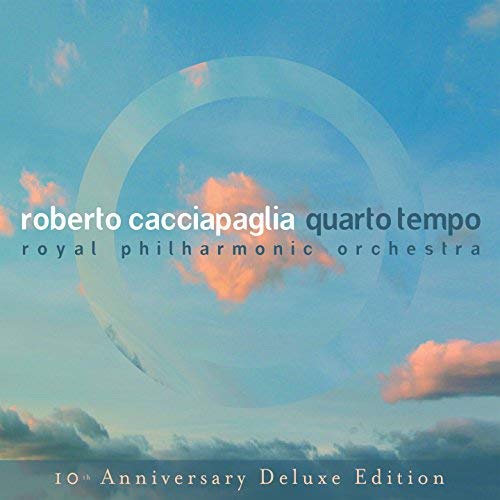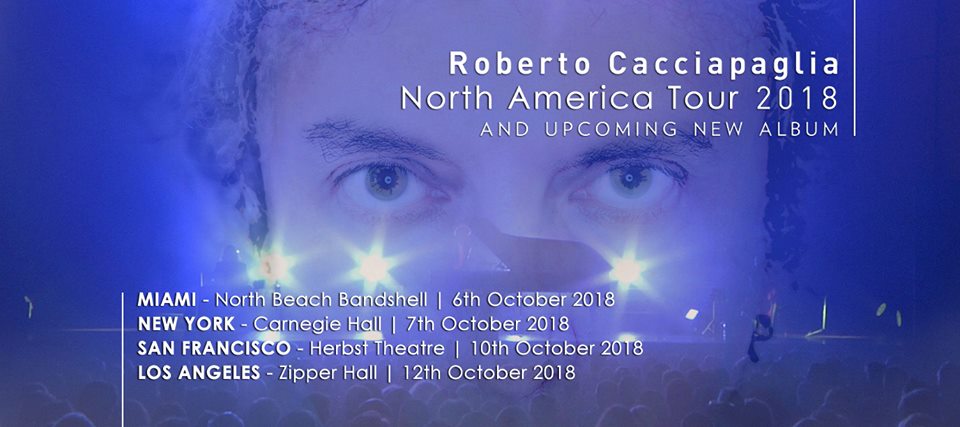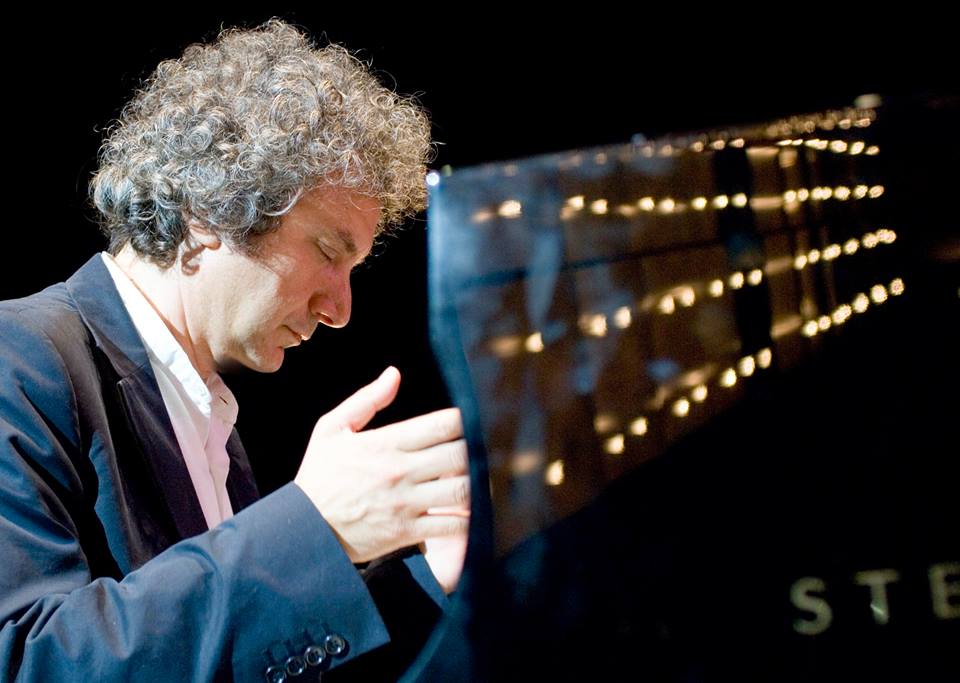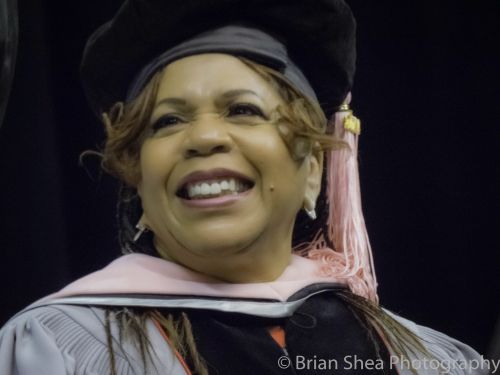Pythagoras used to say that people blessed with harmony are the essence of the universe. In that respect, an artist like the Italian Maestro Roberto Cacciapaglia matches perfectly Pythagoras concept. A musician blessed with a vision of music at 360 degrees, the Italian composer, experimentalist and forward thinker of that marvelous art that is music, has honored our website once again in talking about his latest release, the Deluxe Edition of his 2007 album called Quarto Tempo.
The record, remastered and remixed in London, Uk, at the very famous Abbey Road Studios, has been released under format of Double CD, the first containing the whole of the original album, while the second CD sees Roberto Cacciapaglia performing with the piano only. The Italian Composer released the Special Edition of Quarto Tempo without any sonic manipulation or trickery, maintaining, fundamentally, the purity of the sound at its original form, something that the Maestro is very proud of.
2018 has been so far, a very special year for Roberto Cacciapaglia. Together with the release of the Deluxe Edition of Quarto Tempo, the Italian author Jacopo Caneva has released the first authorized musical biography about the music of the Italian Maestro, called Atlante Del Quarto Tempo - Una Biografia In Musica. To top everything up, Roberto Cacciapaglia has also announced few tour dates in the United States, something that will give the opportunity to the Italian Composer to meet finally his American fans and also to play few tracks of his forthcoming album, planned for release later this year.

BR - Hi, Roberto and thank you again for talking to us at Bluebird Reviews. The release of the Deluxe Edition of Quarto Tempo (Fourth Time) must mean a lot to you. In 2007, when Quarto Tempo was originally released, this was the first time that you recorded with the Royal Philarmonica Orchestra, creating the roots of an artistic collaboration between you and the Orchestra that, since then, has been repeated on four more records of yours. What are your immediate memories of when you went to London to record with one of the most prestigious Orchestras in the world?
RC – True, that was my very first record with the R.P.O. and I always keep in my mind wonderful memories of that experience. One of the main reasons why I chose to work with the Orchestra back then and specifically for Quarto Tempo, was due to the fact that they were able to expand their classic repertoire, based on Beethoven, Brahms, Mozart, etc. to more contemporary sounds, given their collaborations with artists of the caliber of Pink Floyd, Queen, Beatles and many more. As you may know, I am and I have always been very interested to the idea of music at 360 degrees, able to go above and beyond artistic barriers and hierarchies, therefore the Royal Philarmonic matches perfectly my vision and my idea of music. I have been very impressed by their professional approach, in the highest and best possible meaning of the word. I give you an example; I ask, normally, to Orchestras I work with, not to vibrate, because the "Vibrato", so much hated by Stravinskji, both in the vocals and strings, places the sound in a historical way, playing in the same way Orchestras used to play in the Melodrama style or in the way they used to back in the years 1800 and 1900. So I asked the R.P.O. not to do any Vibrato, because the Non Vibrato, on one hand, is more similar in style to the Baroque music or the Sacred music while, on the other hand, it makes the Orchestra to place itself in a position of neutrality between classic and modern. They sound like a Post-Electronic type of Orchestra, because they put themselves in relation with guitars or keyboards, for example. This Post-Electronic aspect of the Royal Philarmonic, an Orchestra that works extraordinarily well in studio, in comparison to many other Orchestras that work better just in theaters or concert halls, has made possible that we started an artistic collaboration that, as you mentioned, has been then extended to few more of my records. Going back to your original question, my most immediate and beautiful memory of that experience back in 2007, it was to find this mutual and universal love we both feel for music, for its harmony, its depth, all things that brought us together to what is musical expression in its most profound and total meaning.
BR - We have noticed that, in the Bonus Disc recorded with the sole piano, the only tune that you left out from the original set-list of the album is Viaggio Di Notte (Night Journey), which you replaced with a splendid composition called Il Ragazzo Che Sognava Aeroplani (The Boy Who Dreamed Aeroplanes). Why did you decide to end the Piano Solo Bonus Disc with a tune not included in the original recording?
RC - Well, the idea was to create a sort of mirror between macrocosm, represented by the presence of a great Orchestra like the R.P.O. and the microcosm, more intimate and essential represented by the use of the piano. In the original recording of Quarto Tempo, Viaggio Di Notte was already a Piano Solo kind of composition, therefore I wanted to balance the Bonus Disc with something different, although still on Piano Solo like Il Ragazzo Che Sognava Aeroplani. Maybe there was the possibility to close the Bonus Disc with a composition executed through piano and Orchestra but I preferred to close the Disc with an "Overture". The idea of recording a double disc of Quarto Tempo was something I had in mind already at the time we recorded the original, back in 2007. To manage to record 24 tunes able to showcase two different ways to approach music, one in the most opened, vast and cosmic style done through an Orchestra and the other more profound and intimate was something that I wanted to do for a very long time. I hope I manage to achieve that well, through this record and I personally believe that the Deluxe Edition of Quarto Tempo completes the record, when intended as an opera. Furthermore, to be able to come back to London and complete the opera at the Abbey Road Studios, where Quarto Tempo was originally conceived in 2007 also with the help on the Mastering side of Andrew Walter, an engineer that has worked with the biggest names of the music business, from Pink Floyd and U2 to Maria Callas, was a fantastic experience. You may be interested to know that, while mixing the album, we have not used any equalizer or anything else that could manipulate the original sound that was recorded with twelve microphones, so to be able to capture all the frequencies. With this in mind, the Double Disc of Quarto Tempo also symbolizes, together with what I mentioned before, the idea of musical purity.
BR - The original album of the 2007 was the natural prosecution of a musical journey that you had started with the previous record called Incontri Con L'Anima (Meetings With The Soul), an important record for you, from which you extrapolated two compositions (Atlantico and Sarabanda) that you included on Quarto Tempo. Was the choice of adding Atlantico and Sarabanda on Quarto Tempo too a sort of platform to enable you to expand the musical path started through Incontri Con L'Anima?
RC - I have to tell you that I find Quarto Tempo a kind of turning point in my career but it is true that, conceptually, the record is the ideal prosecution of a record like Incontri Con L'Anima and that is clearly palpable, on Quarto Tempo. Furthermore, until that point of my career, from a lyrical perspective I had worked a lot on the importance of the lyrics, either of a biblical nature or of a Roman Latin nature, due to the fact that I had worked a lot on Sacred Music, before Incontri Con L'Anima. From that record on and on Quarto Tempo too, I decided to strip down the sound from any kind of lyric, so to make it more pure but trying, at the same time, to keep it still equally profound and sacred.

BR - Does ever happen to you that, during one of your live performances, a member of the audience asks you to play compositions belonging to the more experimental albums you have recorded in your career?
RC - Very good question. Sometimes it happens and, funny enough, right now, on my current Tour, I am playing new tracks on which I am working right now and will be part of my new record. The reason why I am telling you this is because my new album will enclose, like a sort of musical magnet, a sum of my musical journey, from my early album, more experimental, to the more contemporary ones as a part of a project that aims to unify the type of different audiences that I have gathered through the years. Often, those who were listening to my earlier albums, they wouldn't listen to the more contemporary ones, thinking that I have gone mad (chuckles) and those loving the more contemporary albums would think the same of my earlier albums. I feel that I am living a special moment of my artistic career, almost magical and mystical, because I sense that, all I am doing right now, at this stage of my career, it conveys all my artistic experiences, from the beginning until now. knocking down all stylistic divisions and channeling them in a sole musical form, an ideal "Melting Pot". Since I started as a musician, I have always tried to observe every angle of music, just like an explorer would do when discovering new lands. But it wasn't enough for me just to observe territories or take a deep look at them but I always wanted to be able to command them, from a musical perspective. I feel I have touched, during my career almost the entirety of the musical universe, from the dodecaphonic compositions until being the first in Italy to record a quadraphonic album like Sonanze (1975), to then reach musical minimalism, where I was conveying to it electronic music, like in the record I did with Terry Riley called In C. About that particular record, I remember that when we recorded with Riley that record, I used to call that style we were playing Fake Modern Music, meaning that the music was sounding of an electronic nature but, in reality, it was all acoustic. If you think that In C's music was created through the sound not just of a piano, but also achieved through the use of items like chains or car's tyres, a little like John Cage used to do back then, that gives you a clear idea of how far I pushed myself through the years on experimenting with music (In C was recorded live in 1988). The fact that, as it often happens lately to me, while I am travelling in countries like United States or United Kingdom, I happen to listen to my music of my early albums and later ones when used as background music for TV promos or for Fashion campaigns (Cacciapaglia's music has been recently used in the latest TV spots for Top Fashion Designers like Stella McCartney and the late great Sonia Rykiel) it is something that doesn't just honor me deeply but represents to me also a measurement scale of how my music still sits there, untouched by time and age
BR - Using Il Fedone, one of Plato's most famous dialogues and the last dialogue, at the same time,of Thrasyllus first tetralogy, through which Plato arrived to the discovery of the real causes behind natural things happening in life just by looking at such things with different perspectives, in Quarto Tempo's Bonus Disc, which new musical frontiers have you been able to discover of the record, by playing it by Piano Solo?
RC - You are absolutely right about Plato and Thrasyllus. I must confess that I wanted to add, in Quarto Tempo, something that ended up being in my anthology called Atlas, a composition called La Riscoperta Del Mondo (The Re-discovery Of The World), meaning watching the world with a different look, a little bit like I have done with the Bonus Disc of Quarto Tempo and using the same comparison that you mentioned about Plato and Thrasyllus. Quarto Tempo, in the end, is that moment, that fraction of time that, in my opinion, we all have lived at least once in our lives, a moment where we lose track of past, present and future and we remain suspended in time, in that fraction, realizing that the universe surrounding us is different until, once that moment is gone, we come back to the present, our real dimension. This is also something that I say often during my concerts to my audiences, about the power of solo-istic music, the non-spoken one, so to speak. A music that has the power to activate that floating in time moment that we were just discussing where we, perhaps, are also able to find out something more about ourselves, as humans. Through my music, I just try to make that moment, where we remain suspended in that micro-capsule of time, to last a bit longer.
BR - Your mother, who comes from Sicily, taught you since you were a young boy that at dawn and dusk, nature seems to stop, like it would take the opportunity to contemplate the beauty of the universe. Aside of personal interpretations that your audience may perceive, when listening to Quarto Tempo, do you feel that the album belongs to a certain time of the day, just like your mother used to tell you?
RC - (Smiles), No, the record doesn’t belong to any moment of the day. To me, it is out of any space or time of the day. It is true enough that Quarto Tempo has been conceived in various moments of the day but, in my personal view, Quarto Tempo is a record where there is no Before or After, or distances or proximity. It’s an album out of a defined temporal space and, for such reason, out of any specific time of the day.
BR - Roberto, let me ask you about your Quarto Tempo Tour and your live performances. You have toured Russia, one of the many countries in the world that love your music not long ago, through a series of Sold Out shows. You are still touring, right now, Italy but we are also aware that your American fans will finally have the chance to see you touring the States later this year. Could you please tell us a bit more in depth about the part of the Quarto Tempo Tour that will touch the United States?
RC - Sure, no problem. All the Tour Dates in the States have been confirmed and they are the following: Miami – North Beach Bandshell, 6th October 2018, New York – Carnegie Hall, 7th October 2018, San Francisco – Herbst Theatre, 10th October 2018 e Los Angeles – Zipper Hall, 12th October 2018. The idea, for the part of the Tour in the United States, is to play live part of the Quarto Tempo album and also, as a worldwide exclusive, part of my new record on which I am working right now, which should be hopefully ready to be released later this year or early 2019.

BR - Between the release of your anthology called Atlas and the release of the Deluxe Edition of Quarto Tempo, you must have been particularly busy, not even considering your live activity. When do you find the time, with such a busy daily schedule, to work on new material?
RC - Well, I can always find the time to dedicate on new material because, as we discussed, there are so many dawns and dusk, during someone’s lifetime (smiles). Especially at dawn, which is a time of the day where I normally meditate and from where many new musical ideas are born, to then be shaped later in studio.
BR - Roberto, Music is such an incredible free art form that doesn’t provide structured directions and, during all these years, very few artists have been able to put in practice so brilliantly the concept of letting the music flying free, without any constriction like you did and still do. What is your secret behind being able to maintain a musical "Forma Mentis" always prone to search for new highways of sound?
RC - Look, I always start from silence, as I often mention to my audiences during my live performance, as the basic principle and I never loved to create something that some may call “Associative Music” or music that should be necessarily associated to specific styles. I consider sound like the subject of the sound itself. I haven’t got the necessity of telling stories and I leave to the spontaneity of creating music, that comes from silence, to be the primal push, to be the dawn of a creation, so to come back to the dawns we were talking about previously (smiles). To enter and move freely in the highways of sound you were asking me of, I don’t need to be overloaded with thoughts but I rather try to be serene and sober in mind and spirit, so to be able to channel that energy needed to create new sounds, coming from the immediacy of the moment. I believe that, in order to be able to create new sound, a musician just needs tranquility and to observe the world surrounding him. Then, the music comes by itself, sooner or later. This is what I try to do through my composition, during my artistic journey along those highways you mentioned before and to make my observations in music to migrate to my fans.
Information regarding tickets availability for Roberto Cacciapaglia's American Tour Dates can be found at this link: Roberto Cacciapaglia Official Website.
The biography of the Italian Maestro (available only in Italian language) can be purchased via Amazon


